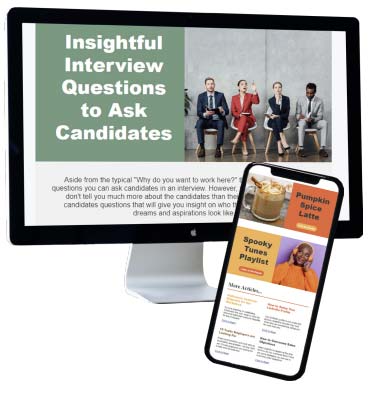Cover Letters: A Thing of The Past or More Important Than Ever?
Posted: March, 24, 2021 | Categories:
Resume Tips

In a 2020 survey of 236 hiring managers and recruiters, ResumeGo found that 87% of employers read cover letters. Yet, according to a study by CareerBuilder, only 44% of job seekers include a cover letter in their application. If most employers are reading cover letters and less than half of applicants are including them, adding a cover letter to your next application could increase your chances of getting the interview exponentially.
What is a cover letter?
The purpose of a cover letter is to introduce yourself to the employer and encourage them to read your resume. A cover letter isn’t a reiteration of your resume; instead, it is a precursor. A cover letter should invite the employer to read your resume by demonstrating your connection to the job and company at hand. This means that for every job you apply to, you should be writing a new cover letter.
A cover letter is a way for you to communicate your interest in applying for the job, explain how your work history or professional skills would benefit that role, and demonstrate how your values and goals align with that organization.
Why do I need a cover letter?
If you’re serious about getting the position you’re applying for, a tailored cover letter will increase the likelihood of that happening. A well-written and targeted cover letter allows you to sell yourself to an employer in a narrative format and show why you are the ideal candidate.
Here are some important reasons you need a cover letter in your next job application:
- Telling your story – Cover letters allow you to elaborate on your story. You can share whatever information is relevant. Some things to share may include: where you came from, what interests you, or why you’re so passionate about the role or company.
- Building a relationship with the employer – A cover letter is your chance to make it personal. It gives your hiring manager the chance to get a sense of how your background and personality fit within the role & company culture.
- Explaining gaps in your work history – Gaps in employment without an explanation can exponentially decrease the likelihood of you landing an interview. A cover letter allows you to explain why that gap exists, so the hiring manager understands that you had a valid reason and are still a good fit for the position.
- Giving important details – With limited space on your resume, it can be challenging to get everything down that you wanted to. A cover letter allows you to expand on your resume and get to those details that just wouldn’t fit. For example, suppose you are relocating for the position, and your resume has your current address. In that case, a cover letter will allow you to explain your interest in relocating and your availability for a local or video interview.
- Elaborating on how your skills and experience transfer to a new industry or role – Say you’re applying to a job that’s completely different than any job you have previously held. With your resume alone, it can be difficult to make a case for why you would be a good fit. However, with a cover letter, you can explain how your accomplishments and the things you learned in your previous roles will make you a strong fit for the new one you are interested in.
- Explaining your relationship with someone who referred you – If you were referred to a company, you should communicate who referred you and why in your cover letter. Maybe it’s an old boss of yours who has a good relationship with an executive at this new company and thought you would be a great fit based on their experience working with you. That’s something you want the hiring team to know! Regardless of the “why,” a cover letter gives you a chance to make a case for why that connection believes you are an excellent fit for the role.

When should I include a cover letter?
While your goal should always be including a cover letter, there are some situations when it’s not necessary.
Don’t include a cover letter if:
- There’s no way to upload it – If there is no place to upload a cover letter on the application, don’t include one.
- The job ad states explicitly they don’t want one – If the application instructs that you should not include a cover letter, you should follow those instructions.
- You don’t intend to personalize your application – No cover letter is better than a poorly written or templated cover letter. If you don’t plan on carefully crafting a personal cover letter that pitches you as the best candidate for the role, then do not include a cover letter.
How to write a cover letter
Need help writing your next cover letter? Our article How to Write the Perfect Cover Letter outlines what makes a great cover letter, provides examples, and shows you how to write one.
Sign Up For The JWilliams Staffing Newsletters, Tips & Trends
By signing up today you will receive our blog and email updates!
You can also opt out at any time





